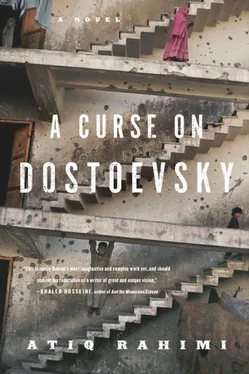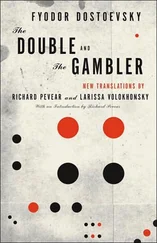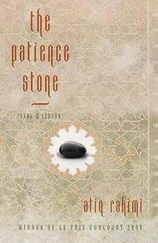From your feet, your hands.
He moves. His feet and hands are heavy.
Heavy too are his opening eyelids.
Everything is dark. He is lying on a mat in a tiny room. Gradually, he becomes aware of the sky, far away, purple, framed by a small window covered in wire mesh at the very top of the wall. He sits up. The clanking of the chains echoes through the room, out the door, and into the deserted corridor. Rassoul moves toward the door and tries to open it with his bound hands. No handle. He pushes but it doesn’t open. He bangs. He shouts. No response. Just these chains clanking in the silence of the night. He stops, defeated. Is it already over?
Here?
He bends down. Touches and explores the chain around his ankles.
I had barely recovered my voice.
Already, I am doomed.
Already, I am dying.
Dying, without a word, the final word?
He huddles his head between his knees.
He does not weep.
Suddenly, there is the abrupt sound of a door opening, and then footsteps shuffle down the corridor. He springs up, bends his ear to the door. The footfall approaches and then stops. The jangling of a bunch of keys, and the door opens. The harsh light of a torch scours the gloom, blinding Rassoul. A young bearded man points his gun at Rassoul and then waves in someone who has remained in the corridor. The face of the clerk appears. He comes in carrying a small tray in one hand, and a weak lantern in the other. Rassoul rushes forward to greet him. “Don’t move!” screams the guard. The clerk turns toward him: “In the name of Allah, don’t shout so loud!” and comes into the cell to hand Rassoul the tray. “We told you to stay and eat with us, and you didn’t want to. You seemed in a hurry to get here… so, are you happy now?”
“No.”
“But this is what you wanted, isn’t it?”
“Yes, but not like this.”
“How, then? Did you think they would take you to the Intercontinental Hotel, in a flower-strewn car, with an orchestra playing?”
“I’m talking about the sentence, not the welcome. This sentence without a trial. I don’t want to leave the world without saying anything, without having the last word.”
“Who do you think you are? The Prophet? Because your name means the Holy Messenger?” The clerk puts the lamp on the ground. “Sit down and eat something!”
“Where is Commandant Parwaiz?”
“Who is Commandant Parwaiz?”
“The head of security for Kabul; he works at the Ministry of Information and Culture.”
“So?”
“I want to see him.”
“It’s already dark. They’ve announced a curfew tonight. There’s a lot of fighting outside; even a fly wouldn’t risk the journey. I’m going to stay here with you for a while.” He says to the guard: “We would like a few minutes together. Can you take off his chains? I swear he won’t try to escape. Don’t worry. He came here because he wanted to.”
“And he’ll leave because he wants to, as well!”
“I’ll take responsibility. You know me. He’s a Muslim too. He’s made a mistake—let him unburden his heart.”
The guard thinks for a moment and then yields, asking for a little tobacco. Rassoul offers him his pack. “He smokes Marlboro, the bastard!” He takes two, returns the pack, and leaves.
The clerk sits down. “Come on, eat something.” He pushes the tray toward Rassoul, who isn’t hungry, or doesn’t feel like eating.
“Eat! You’ll feel hungry once you start eating. Give yourself a little nourishment so that your blood can irrigate your brain; that way you might understand something! Why must you joke around with these guys?”
“I’m not joking. I want to be sentenced because I’m a murderer, not because my father was a communist.”
“You are either naïve, have never lived in this country, or don’t know anything about Islam and fiqh . You know, in sharia, killing someone is a crime dealt with by qisas: an eye for an eye, a tooth for a tooth. And that’s it. It is a sentence concerned with the claims of man, so the victim’s family decides the punishment. You, on the other hand, as a communist, represent fitna , discord. Therefore, you are judged by the law of hudud , equal penalty, a punishment established by the claims of God. Do you understand? I hope this isn’t a riddle for you.”
“I understand perfectly. But first of all, my father was a communist, not me! And…”
“No, you don’t understand anything! Since when has anyone been judged as an individual in this country? Never! You are not what you are, but what your parents and tribe are. But perhaps that’s a little complex for you. Come on, eat something!”
“Even you don’t take me seriously.”
“I take you seriously, but I don’t understand you, because even you don’t really understand what’s eating at you. Is it guilt? Or the absurdity of your crime?”
“Neither. It’s a profound discontentment with life.”
“Now don’t mix things up. It’s because you are struggling to come to terms with your crime, your guilt…”
“I’m struggling to come to terms with my crime, because it hasn’t surprised anyone. And no one understands it. I am weary. Weary and lost…”
Weary and lost, and with these five words suspended in his soul: What is to be done .
It is dark, and the clerk cannot see these words in Rassoul’s eyes the way he saw them in the eyes of the donkey.
He must tell this old man the Nayestan story. Perhaps he will understand it.
So he tells him.
This time, he lingers on two moments in the tale. First, the strange feelings he had in the reeds at the end of the day, when he woke from a deep sleep: “I was invaded by a feeling of dread—vague at first, and then palpable. It was accompanied, bizarrely, by a strange sense of detachment. A detachment that didn’t come from inside me; it was there, in the sky, the reeds, the wind, outside me… Everything was slipping away from my body, my spirit, in a word from my djan . Everything was moving away from me. Where did this sense come from? The empty sky? The breeze in the reeds? My father’s futile waiting? I still don’t understand.”
After that, of course, he describes very closely the look in the donkey’s eyes. This time, he reads another feeling into that look: “It wasn’t only expressing his helplessness, What is to be done , but also his weariness, begging: ‘Do away with me!’ That’s what the donkey was asking. It didn’t understand what had happened. It felt condemned to walk up and down the same path forever. Therefore, it wanted to die. And because it was unable, it was asking us to carry it out. By forcing its execution on us, it also made us reflect on our own situation, our own lot.”
The clerk gives Rassoul a piece of bread, and takes one for himself. As he dips his bread into the stew, he says, “That is a beautiful story. It reminds me of one by Mullah Nasrudin. One day, Mullah returns home happy and full of joy. His wife asks him why. Mullah replies: ‘I’ve lost my donkey.’ His wife retorts: ‘And that makes you happy?’ He says: ‘It does! I’m happy because I wasn’t riding the donkey when I lost it, or I would have lost myself, as well!’ I know this isn’t the time to be telling funny stories, but your story made me think of it. You were lost because the donkey was lost. And today, you want to be condemned to death because that is what the donkey taught you! It is good, very good, to learn everything from everything: even the desire to die, and especially from a beast.” He stands up. “Tomorrow, as soon as dawn breaks, at first prayers, I will search out your commandant. Now eat, and sleep.” He takes his lantern and leaves, reciting in the silence of the corridor: “The Revelations of Devout and Learn’d / Who rose before us, and as Prophets burn’d, / Are all but Stories, which, awoke from Sleep, / They told their fellows, and to Sleep return’d.” He disappears into the black intensity of the night.
Читать дальше












